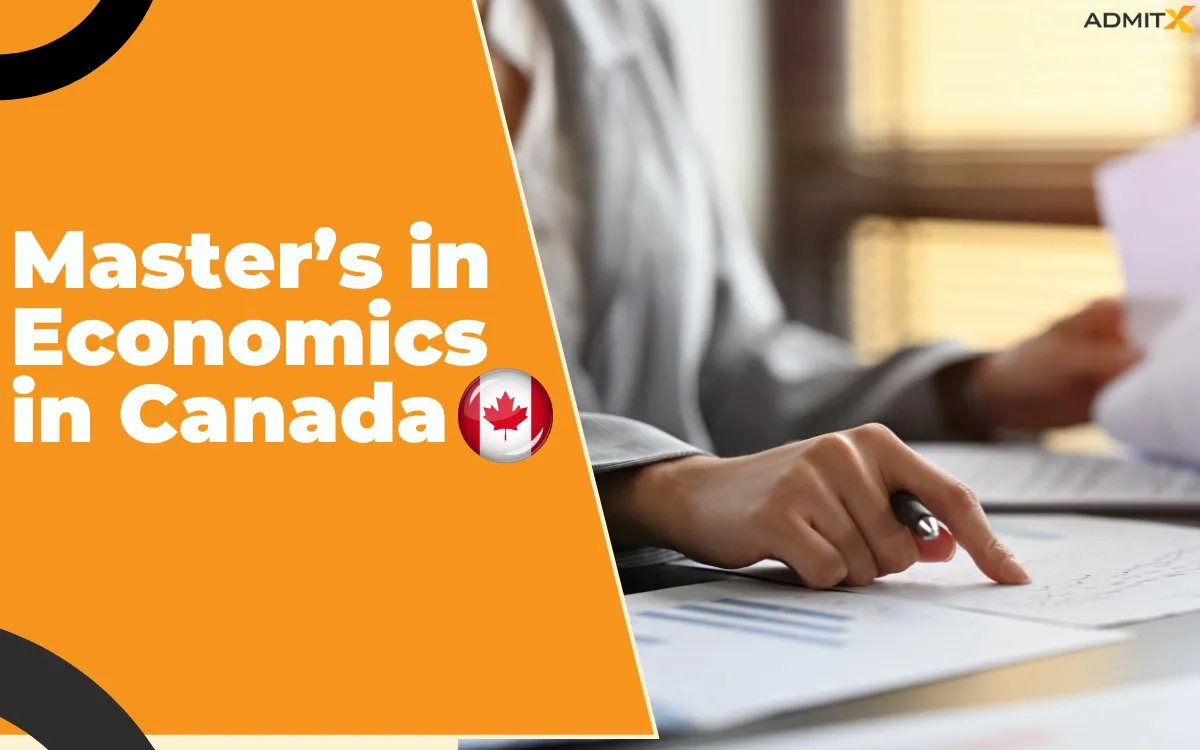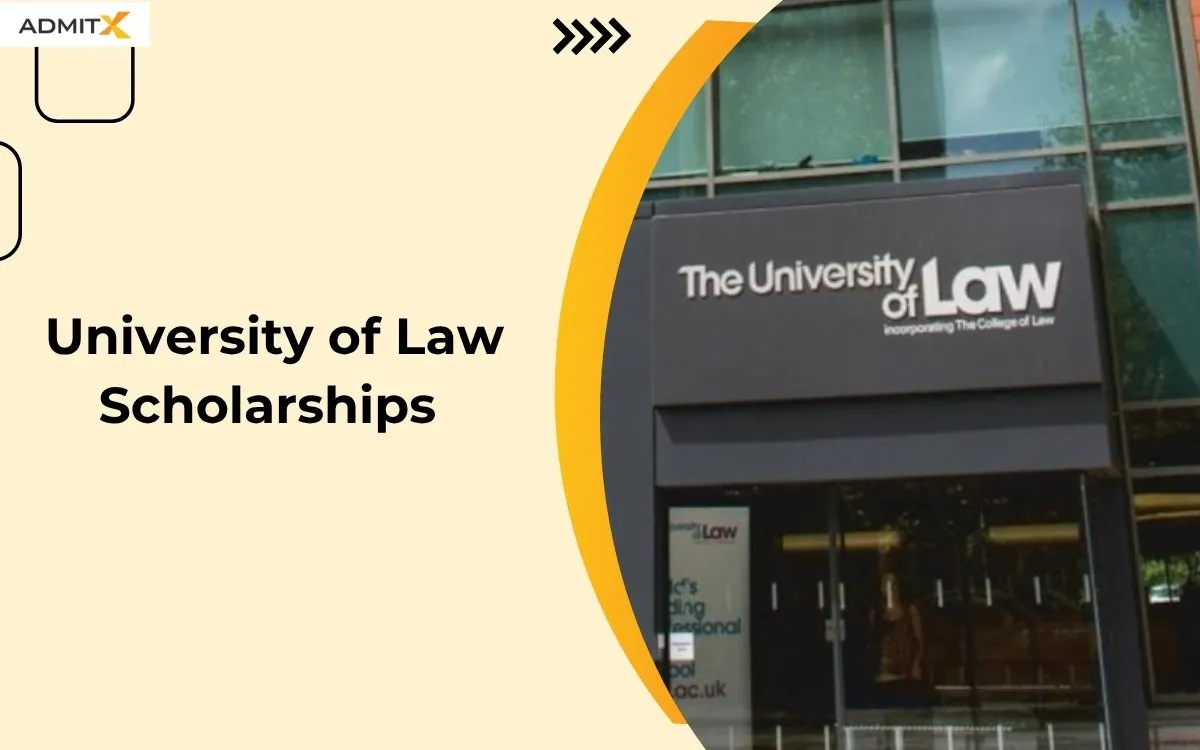
Master’s in Economics in Canada: Top Universities,Tuition Fees, and Career Scope
A Master’s in Economics is a 1-2 years long comprehensive program that helps students gain theoretical and practical knowledge in various areas such as microeconomics, financial economics, labour relations, and behavioural economics. The top universities, advanced research scope, and diversified job roles have made Canada one of the dream destinations for international students.
- Why Study for a Master’s in Economics in Canada?
- Top Universities for Master’s in Economics in Canada
- Syllabus for Master’s in Economics
- Requirements for Master’s in Economics in Canada
- How to Apply for a Master’s in Economics
- Post-Graduation Work Permit for Indian Students in Canada
- Career Opportunities After Master’s in Economics
- Conclusion
Why Study for a Master’s in Economics in Canada?
Masters in Economics help students learn in several domains, such as microeconomics, macroeconomics, labour relations, and environmental economics. The course helps students develop advanced analytical skills, critical thinking and problem-solving. Here are some reasons why many students opt to study for a masters in economics in Canada:
- High standards of living, affordable housing facilities & tuition fees allow many students to migrate to Canada for higher education.
- Research infrastructure, scholarship opportunities, and advanced methodologies attract international students to Canada.
- The country also offers a safe and welcoming environment for education, which is a pull factor in attracting international students.
Top Universities for Master’s in Economics in Canada
The top universities in Canada offer practical & theoretical knowledge in economics and advanced research opportunities that help students find solutions to real-world problems. Some of the universities are listed below:
| University | Course Name | Duration | QS Ranking 2024 (Economics & Econometrics) | Total Tuition Fees |
|---|---|---|---|---|
| University of Toronto | Masters of Financial Economics | 8 months | 19 | CAD 93,000 |
| University of British Columbia | Master of Arts in Economics | 1 year | 21 | CAD 29,664 |
| McGill University | MA in Population Dynamics | 1 year | 21 | CAD 14,890 |
| McGill University | MA in Development Studies (Non-Thesis) | 1 year | 81 | CAD 14,890 |
| University of Calgary | MA in Economics | 1 year | 250 | CAD 25,180 |
Syllabus for Master’s in Economics
The syllabus of the Master’s in Economics is majorly divided into 2 parts such as core & elective modules.
Core Modules
These include the mandatory subjects in the course. Some of them are:
- Introduction to Econometrics
- Mathematics for Economists
- Microeconomics
- Macroeconomics
- Financial Economics
- International Economics
- Statistics
- History of Economic Theory
- Public Economics
Elective Modules
Elective modules refer to the subjects taught along with core/mandatory subjects.
- Monetary Economics
- Game Theory
- Development Economics
- Industrial Economics
- Quantitative Techniques
Requirements for Master’s in Economics in Canada
Educational Background: A bachelor’s honours degree in mathematics/finance/economics or related discipline is required for admission.
- Candidates need a four-year bachelor’s degree in economics or a minimum of 3.0 out of 4.0 to apply for this program.
Language Proficiency Test: Tests like TOEFL/IELTS are required for admission.
- IELTS: Minimum 7.0
- TOEFL iBT, an overall score of 96 or above.
GRE: Students need their GRE score for admission to Canadian universities. A score of 305 or above is required for admission to MS in Economics in Canada. However, not all universities require GRE scores as a part of their admission process.
How to Apply for a Master’s in Economics
- Application Form: Candidates must fill out the application forms of their desired universities.
- Academic Transcripts: Students need their 10th & 12th mark sheets and a bachelor’s degree certificate.
- LORs & SOPs: LORs and SOPs play an essential role in admission. Getting into your dream university requires two to three letters of recommendation and one SOP. Refer to our SOP review tool to boost your application.
- GRE: The GRE score becomes a significant criterion that influences the admission of students.
- Language Proficiency Test score: Scores secured in TOEFL/IELTS also become essential to admission. (Note: Many universities do not accept TOEFL iBT home edition test scores for admission).
- Passport: A passport is also an important document required during admission.
Post-Graduation Work Permit for Indian Students in Canada
Post-Graduation work permit in Canada is available to students who have graduated from a designated learning institute & want to stay in Canada temporarily to work. The validity period of a post-study work visa is 3 years for those students who have graduated from a master’s degree program of less than 2 years (minimum 8 months).
Career Opportunities After Master’s in Economics
Masters in Economics offers various career options in economics, mathematics, business, and statistics. Some of them are:
- Economist: An economist conducts economic research, and analyses data using statistical and mathematical models. They are also responsible for predicting future economic trends such as GDP forecasts, inflation rates, and employment levels. The average salary is CAD 89,000-100,000 (INR 55-62 lakhs).
- Financial Analyst: A financial analyst is responsible for data analysis, market research & predicting future economic trends. They also focus on making investment strategies, risk management, and reporting. The average salary of a financial analyst falls from CAD 73,000-102,000 (INR 45-63 lakhs).
- Policy Analyst: Policymaking is vital in strengthening economics and providing stability. A policy analyst works with government agencies, NGOs, international organisations, etc. Their job is to understand trends, analyse market conditions, etc. A policy analyst earns an average salary of CAD 75,000-86,000 (INR 47-53 lakhs).
- Business Analyst: Analysing trends in business becomes crucial for driving company profits, understanding the market dynamics & many more. A business analyst focuses on assisting in testing systems, implementing & meeting the performance of new processors or systems, and gathering feedback. The annual income of an analyst is CAD 75,000-131,000 (INR 47-81 lakhs).
- Statistician: Statisticians are responsible for the collection, analysis & interpretation of data. They apply statistical theories & methods to solve real-world problems. The average salary of a statistician falls from CAD 80,000-100,000 (CAD 50-62 lakhs).
| Job Roles | Average Salary (per annum) |
|---|---|
| Statistician | CAD 80,000-100,000 (CAD 50-62 lakhs) |
| Business Analyst | CAD 75,000-131,000 (INR 47-81 lakhs) |
| Policy Analyst | CAD 75,000-86,000 (INR 47-53 lakhs) |
| Economist | CAD 89,000-100,000 (INR 55-62 lakhs) |
| Financial Analyst | CAD 73,000-102,000 (INR 45-63 lakhs) |
Conclusion
Masters in Economics in Canada help students gain hands-on experience in statistics, mathematics, finance, and business. Top-ranked universities, affordable tuition fees, and living expenses make Canada one of the leading destinations in the world for international students.
FAQs
What I can do with a Master's degree in Economics?
After completing the post-graduation degree program in Economics from Canada, students can engage in research-based activities such as PhD. They can also opt for other job roles like analyst, statistician, and many more.
Is a GRE score required for admission into a Master in Economics in Canada?
Yes, GRE scores are a part of the admission process. However, not all universities require a GRE score as a part of their admission process.
Can I pursue a Master’s in Economics after completing my bachelor’s degree in Mathematics?
Yes, students can pursue their Master’s in Economics after completing their bachelor’s degree in Mathematics. However, for more information related to the eligibility criteria, students can visit the official website of their desired university.
What are the subjects studied in Master’s in Economics?
The subjects are divided into core and elective modules. Some of the key areas of study in the core module are microeconomics, macroeconomics, labour relations, financial economics, and international economics.
What is the cost of living in Canada for Indian students?
The average cost of living in Canada for Indian students is CAD 1500 per month (INR 92 thousand).
If you are an aspirant looking to study at your dream university, book an appointment with AdmitX today and start your applications early to avail yourself of all the benefits.








